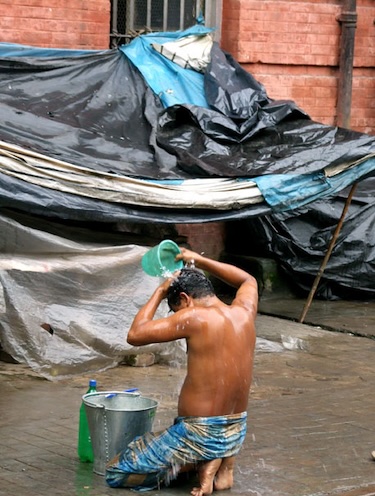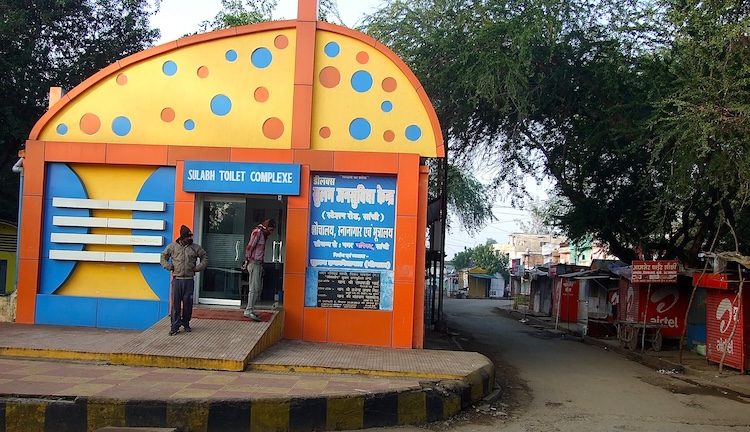By Kalinga Seneviratne
BANGKOK | 4 June 2024 (IDN) — The recently concluded 10th World Water Forum (WWF) in the Indonesian tourism island of Bali focused on adoption of technology—that will include desalination plants and solar power—as the savior to provide safe drinking water to millions of the poor communities across the world. But activists say that this approach will make it harder to achieve the Sustainable Development Goal (SDG) 6 on Water and Sanitation for All.
The UN released its World Water Development Report 2024: ‘Water for Peace and Prosperity’, warning that the availability of accessible clean water has been on the decline, causing over 1.4 billion people face water shortages. The report estimates that an annual budget worth $114 billion is required for the world to provide people with proper access to drinking water and sanitation facilities.
Thus, in his opening remarks to the WWF in Bali, outgoing Indonesian President Joko Widodo called upon the international community to “work together to promote efficient and integrated management of water resources” so that “water can be managed and used for common prosperity”.
Loic Fauchon, President of the World Water Council (WWC) speaking alongside President Wododo warned that water as well as sanitation are political priorities. “Water is politics” at all levels, international, national, and local, and these priorities require actions and solutions which are themselves political, he argued, calling for a “perfect alliance between innovation, governance, and finance”.
“To achieve this, let us put our trust in engineering and technology, combined with digital innovations,” Fauchon told the audience at the opening ceremony. “Thanks to them, we are ready to intensify ‘unconventional resources’ such as desalination, reuse of wastewater, construction of aquatic reserves, water transfers, careful use of groundwater and many others,” he added.

The World Water Forum has been taking place every three years since 1997, organised by the WWC, a non-profit organization based in Marseilles, France. Its 260 members include a number of UN agencies such as the Food and Agriculture Organization (FAO), UNESCO, and UN Habitat, government agencies, utilities and infrastructure companies, academic and civil society organizations. This year’s gathering saw some 55,000 participants from 160 countries.
Desalination as a panacea
Through exhibits and expo floor stalls, panel discussions and high-level presentation sessions, technology was pushed as the key solution to the world’s water woes. China and South Korea showcased their latest dam innovations and smart irrigation technologies using big data, artificial intelligence and cloud computing. International institutions like the FAO and World Bank stressed the need for digitalization in water management, such as drought tracking and irrigation monitoring.
Even Tesla boss, Elon Musk dropped in at the opening ceremony taking the floor to advocate for desalination as a panacea for the world’s drinking water problem. “Desalination, as most people know, has become very inexpensive. The availability of freshwater is simply about (a matter of) energy and transport,” Musk told government leaders, business executives and donors at the invitation-only event broadcast live on May 20. It is not clear whether he is planning to invest in desalination plants using solar energy to power them.
In a special seminar session, China presented an English language version of President Xi Jingping’s insights into water resources and management. One of the important parts of the book discusses an innovative philosophy on water governance that Xi proposed in 2014, which focuses on “prioritizing water conservation, balancing spatial distribution, adopting systematic approaches and leveraging the roles of both government and market”.
Li Guoying, China’s minister of water resources addressing the event pointed out that guided by Xi’s principles, China has made historic strides and significant improvements in water governance. “With only 6 percent of the world’s freshwater resources, China has successfully ensured food and water security for nearly 20 percent of the world’s population and has contributed to more than 18 percent of its GDP”, he noted.
The director for the global water practice of the World Bank Group, Saroj Kumar Jha, urged governments around the world to prioritize the water sector budget to achieve SDG 6. Addressing a panel discussion, he pointed out, that countries like the Democratic Republic of the Congo, spend only 2 to 3 percent of their annual budget on water. However, they spend 7 percent on agriculture, 13 percent on transport, and 26 percent on energy. Thus, he highlighted that most developing countries spend less than 2 percent of their annual budget on water.
“There is no way you can achieve that (economic growth) by spending less than 2 percent of your budget on water. Do not expect the private sector to come when you don’t prioritize (water)… you got to lead the sector by having the right kind of policies (and) regulations, and of course, backed up by appropriate financing in the sector,” stressed Jha.
Speaking to Mekong Eye on the sidelines of the forum, Caroline Turner, Programme Manager for the FAO’s Asia Pacific Water Scarcity Program warned: “Efficient irrigation systems actually end up consuming more water …It [technology] is not a solution. You can use all the technology in the world, but if you don’t limit the amount of water someone is allowed to use, they are just going to continue to use water,” Turner argued, hailing water allocation as a crucial solution to water scarcity.
“Water for Shared Prosperity”
Water allocation, both domestic and international, is a political issue that could even lead to geo-political tension as seen in the Mekong River and Brahmaputra[1] River regions that flows across international borders.
At the 10th edition of the WWF the participating ministers adopted a declaration for the first time in the forum’s history on “Water for Shared Prosperity”. Agreed upon by 108 countries and 30 international organizations, they put forward various proposals, including the designation of a World Lakes Day through a UN resolution, the establishment of a Center of Excellence on Water and Climate Security, and the mainstreaming of water management issues for developing countries on small islands.
While technology was promoted by big business and international agencies at the WWF, marginalized groups that lacks access to water were not present in any of the panel discussions. As they have done for 20 years, the Peoples’ Water Forum (PWF) held their own parallel sessions in Bali. Activists from this water justice movement blasted the priority given to privatization of water and corporate capture of water resources that would impact on marginalized communities.
“The accumulated evidence, however, overwhelmingly demonstrates that the market-based restructuring of the water sector exacerbates many of the pressing problems we are told it seeks to address. These reforms increase costs for households and public budgets while granting easier access to water-intensive and water polluting industries” said PWF in a statement from Bali. “The WWF agenda threatens democratic control of water and equitable access for small farmers, rural communities, the urban poor and other marginalized and vulnerable populations”, it added. [IDN-InDepthNews]
Photo: New public toilets that have been built across urban India under Prime Minister Narendra Modi’s “built more toilets” campaign. Picture: Kalinga Seneviratne
[1] https://warontherocks.com/2020/12/a-conflict-prone-river-takes-a-step-backwards/


